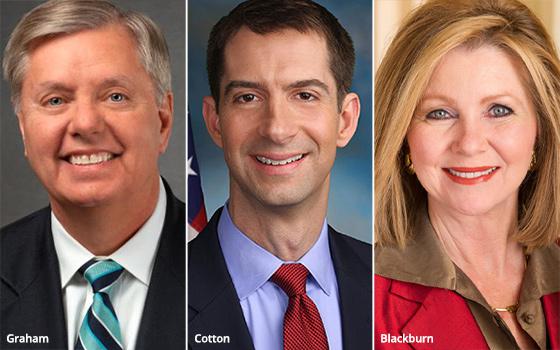
Once again, lawmakers are taking aim
at apps and digital services that allow end-to-end encryption.
In what they’re calling the Lawful Access to Encrypted Data Act, Senate Judiciary Committee Chairman Lindsey Graham
(R-South Carolina) and U.S. Senators Tom Cotton (R-Arkansas) and Marsha Blackburn (R-Tennessee) say “warrant-proof” encryption features jeopardize national security.
“In
recent history, we have experienced numerous terrorism cases and serious criminal activity where vital information could not be accessed, even after a court order was issued,” Graham said in a
statement. “Unfortunately, tech companies have refused to honor these court orders and assist law enforcement in their investigations.”
Facebook’s WhatsApp is singled out in
the bill and accused of facilitating drug deals and cash drops by the Sinaloa Cartel.
advertisement
advertisement
In response, Facebook insists such an act would do more harm than good.
“End-to-end
encryption is a necessity in modern life,” the tech giant stated. “Rolling back this vital protection will make us all less safe, not more.”
That said, Facebook said it
remained committed to continuing to work with law enforcement and fighting abuse, “while preserving the ability for all Americans to communicate privately and securely.”
If
successful, the bill would force Facebook and other tech companies to aid law enforcement in their investigations, including carrying out warrants.
In addition, it would allow the
U.S. Attorney General to issue directives to service providers and device manufacturers to report on their ability to comply with court orders, including timelines for implementation.
Encryption features have long been the target of lawmakers and law enforcement officials.
From 2015 to 2016, for example, the FBI engaged in a protracted legal battle to force Apple to
provide access to the iPhone belonging to one of the shooters in San Bernardino terrorist attack.
Preempting cries of government overreach, the authors of the new bill insist it will not
threaten the privacy of law-abiding citizens. “Our legislation respects and protects the privacy rights of law-abiding Americans,” Graham asserts.
Consumer privacy advocates are
not buying what Graham and his colleagues are selling.
"Banning strong #encryption to prevent cybercrime is dumber than: burning books to stop spelling errors; ending air travel to stop plane
crashes; or outlawing cars to stop getaway drivers,” Albert Fox Cahn, executive director of the New York-based Surveillance Technology Oversight Project (STOP),
tweeted on Tuesday.